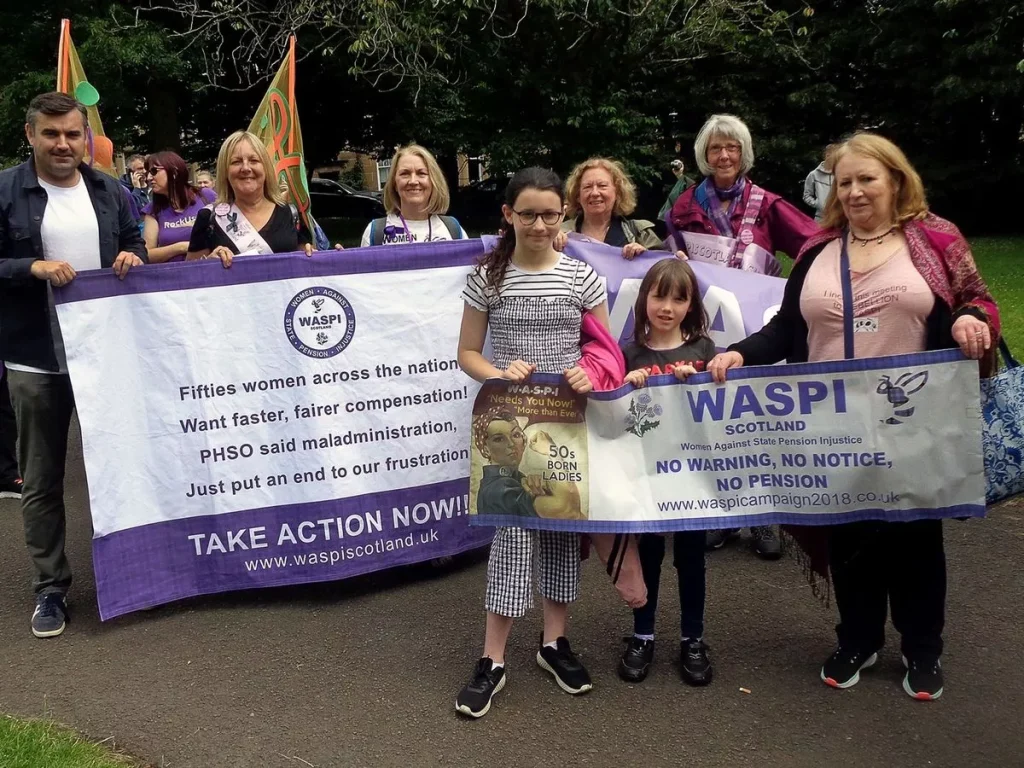WASPI Women `feel betrayed` by the Government decision not to compensate
Secretary of State for Work and Pensions Liz Kendall MP has today announced that no compensation will be paid to women born in the 1950s hit by changes to the state pension age. This will come as a major blow to many CSPA women members born in the 1950`s who have seen the State Pension rise from 60 to 66, without adequate warning.
In an oral statement to Parliament today, the Secretary of State outlined the Government’s response to the Parliamentary and Health Service Ombudsman (PHSO) investigation report. She accepted that the 28-month delay in sending out letters to WASPI women was maladministration – but noted that the Ombudsman had not claimed that these delays led directly to financial losses for the women. This assertion, the Secretary of State continued, was one with which the Government agreed.
Responding to today`s shock announcement CSPA General Secretary Sally Tsoukaris said:
“Today`s announcement will come as a huge disappointment to millions of women born in the 1950`s who reasonably expected to receive compensation for the acknowledged 28-month delay in notification of the change in pension age, following the PHSO`s Report. Women will rightly feel betrayed that no compensation will be paid for the significant losses they have suffered in later life, not even to those with proven hardship because of the maladministration.
Despite this, the Secretary of State announced that the Government did not agree with the Ombudsman’s approach to injustice or remedy. “The report did not take into account that there was actually considerable awareness that the State Pension age was increasing. 2004 research showed that 73% of women aged 45-54 – the very group that covers women born in the 1950s – were aware that the State Pension age was increasing, and 2006 research showed that 90% of women aged 45-54 were aware that the State Pension age was increasing”.
The Secretary of State added that the second reason why the Government would not be adopting the Ombudsman’s recommendations was over disagreement that sending letters earlier would have had the impact the Ombudsman says. Research given to the Ombudsman shows only around a quarter of people who are sent unsolicited letters actually remember receiving and reading them.
Whilst it was acknowledged that this was a difficult decision to take, the Secretary of State confirmed that these two reasons, as well as the failure of the previous government to leave any cash for a compensation scheme, meant that no compensation would be offered.
Related articles

JOIN us
Join the CSPA from £3 per month
Support us in our work with the Cabinet Office to protect your Civil Service pension and access great membership benefits. Membership costs just £3 a month for single or £4.20 a month for a joint membership.
- Support our campaigning
- Help with Civil Service pension issues
- Access high-street discounts
- Access free legal advice












